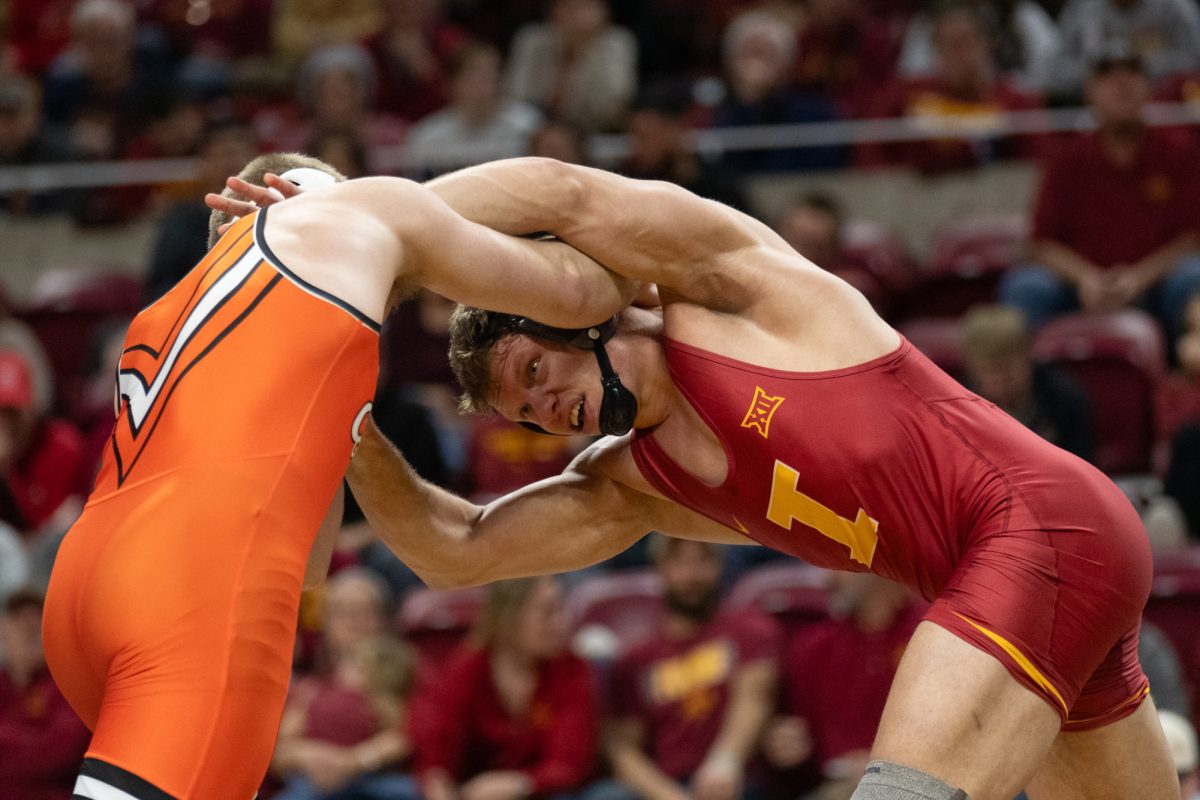GSB takes student issues to Legislature
February 17, 1999
Several members of the Government of the Student Body will be traveling to Des Moines today to meet with members of the Iowa Legislature to address several issues.
“Our intentions for going down there are to educate lawmakers on issues of importance to students,” said GSB President Bryan Burkhardt.
He said there are two primary issues GSB representatives will present to the Legislature.
“The two main proposals that we will be addressing are those discussing the restructuring of the student regent position and a sales tax exemption on textbooks for higher education,” Burkhardt said.
Rod Morris, co-director of inter-governmental affairs for GSB, said addressing the issue of a student regent is an idea shared by the student governments at all three regent universities.
“The idea was actually brought to us by Brian White, president of the University of Iowa’s student government,” Morris said. “We outlined the proposal, but we know that both the U of I and the University of Northern Iowa are behind us on this.”
Burkhardt said the purpose of the proposal is to make certain changes to the requirements for the student regent.
He said under the existing system, the student regent must be a full-time student upon his or her appointment; however, if he or she graduates or leaves school during the term, he or she can remain a regent.
“What we would like to encourage the Legislature to do is to consider a shorter term for a student regent and also require that the position be filled by a person who is a student for the duration of the term,” he said.
Burkhardt said the proposal also will specifically recommend a reduction of the term served by the student regent from six years to two years and require the student filling the position to be a student for the entire length of time.
“That way there will be more accountability and that student appointee will take the effort to make their term count,” he said.
Burkhardt said there also will be a proposal recommending a sales tax exemption for textbooks.
“There are other states that have already passed similar legislation and are considering similar legislation,” he said. “It’s another way to indirectly minimize the ever-rising cost of higher education.”
Morris said he is optimistic about the trip.
“I’m glad we are going down to talk to the Legislature, and I feel that it’s something that should have been done before,” he said. “It seems that people in the Legislature do want to hear what we have to say. We even have appointments with a few of the people who don’t even represent areas around the regent universities.”
Burkhardt said he also feels the trip will go well.
“We’ve already heard positive responses from several lawmakers from phone calls and letters, and I am optimistic that they will be supportive of our ideas,” he said. “[M]any of them have already expressed interest in listening to us, which can’t always be found with the regents or university administration.”
DeDe Jordan-Harris, co-director of inter-governmental relations for GSB, said she is looking forward to the trip.
“It’s an excellent opportunity for us to get in and see how everything works and get a feel for how the state Legislature is run,” she said. “Our representative and the senator from this area have both expressed their willingness to help us, which has been great.”
Harris said she expects the issues addressed will be taken seriously by members of the Legislature, although a couple of problematic constraints might arise.
“The people at the Legislature have to listen to us, and they have to take us seriously because we are their constituents,” she said. “However … [t]hey tend not to take younger adults as seriously when it comes to major issues that concern people. We know that everything might not pass, but at least they’ve given us the chance to present it to them.”






